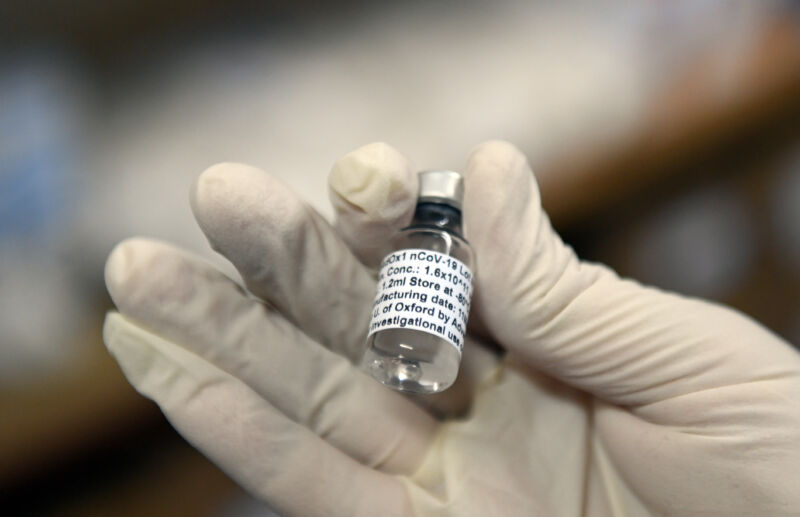
The Trump administration will not take part in a global effort to help develop and equitably distribute a COVID-19 vaccine—a decision experts called “shortsighted” and “self-defeating”—according to a report by The Washington Post.
The White House cited the involvement of the World Health Organization in its decision to shun the effort. President Donald Trump has repeatedly criticized the WHO for being soft on China during the global health crisis, despite the fact that Trump himself repeatedly praised China for its “transparency” and response to the pandemic in January and February. At the end of May, Trump abruptly announced that he was “terminating our relationship” with the WHO, a move that alarmed public health experts.
White House spokesperson Judd Deere told the Post that “The United States will continue to engage our international partners to ensure we defeat this virus, but we will not be constrained by multilateral organizations influenced by the corrupt World Health Organization and China.”
Experts say the decision is a risky one that has the potential to leave the US without secure access to whatever vaccine ends up proving effective in phase III trials.
The vaccine effort the Trump administration has shunned is called the COVID-19 Vaccines Global Access (COVAX) Facility, which is being co-led by the Coalition for Epidemic Preparedness Innovations (CEPI); Gavi, the Vaccine Alliance; and the WHO.
Winners and losers
The COVAX Facility aims to pool resources of high-, medium-, and low-income countries to speed COVID-19 vaccine development, manufacturing, and distribution, working to ensure fair global access to safe and effective vaccines once a vaccine is licensed and approved. There are over 170 countries now in talks to be involved with the effort, which is supporting nine leading vaccine candidates. Some of the countries involved so far are the UK, Canada, Japan, the European Commission, New Zealand, and South Korea.
“In the scramble for a vaccine, countries can act alone—creating a few winners, and many losers—or they can come together to participate in COVAX, an initiative which is built on enlightened self-interest but also equity, leaving no country behind,” CEO of CEPI, Richard Hatchett, said in a statement.
Likewise, Sweden’s Prime Minister, Stefan Löfven, emphasized: “Equal access to a COVID-19 vaccine is the key to beating the virus and paving the way for recovery from the pandemic... This cannot be a race with a few winners, and the COVAX Facility is an important part of the solution—making sure all countries can benefit from access to the world’s largest portfolio of candidates and fair and equitable distribution of vaccine doses.”
Though many high-income countries—including the United States—have struck their own deals with vaccine developers to secure millions of doses of candidate vaccines in case they pan out, experts say there is still a risk to not being involved in the wider, global effort.
Awkward and self-defeating
Kendall Hoyt, an assistant professor at Dartmouth’s Geisel School of Medicine, told the Post that shunning the global effort was similar to ditching an insurance policy. The US can strike its own deals and also be involved with COVAX, she said, increasing the chances that it will have access to the first vaccine. “Just from a simple risk management perspective, this [COVAX decision] is shortsighted,” she said.
Even if the one of the US deals leads to an effective vaccine and the country is able to hoard doses, the result could mean limited access in other parts of the world. That could allow the pandemic to drag on, and the global economy will continue to sputter.
Another wrinkle to the situation is that it’s unclear if the US even can stay removed from the global effort. Though the Trump administration has taken steps to divorce itself from the WHO, the US is a major support of Gavi, the Post notes. “This just shows how awkward, contradictory and self-defeating” all of this is, J. Stephen Morrison, director of the Global Health Policy Center at the Center for Strategic and International Studies, told the Post. “For the U.S. to terminate its relationship with the WHO in the middle of a pandemic is going to create an endless stream of self-defeating moments.”
reader comments
379